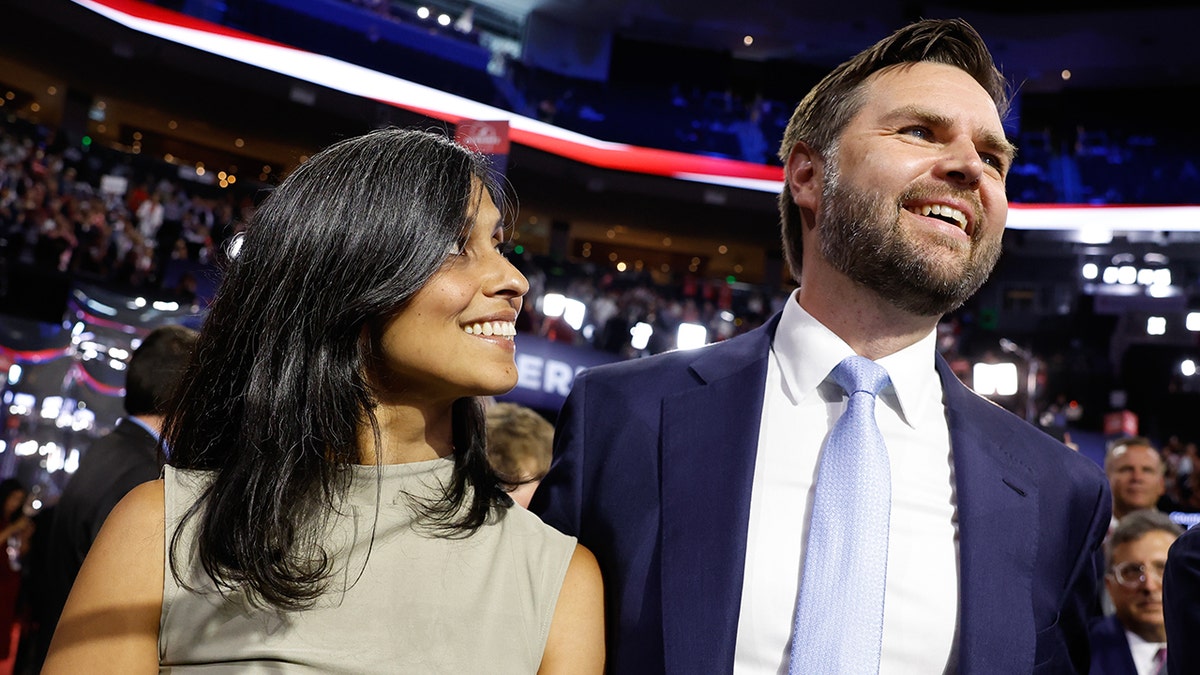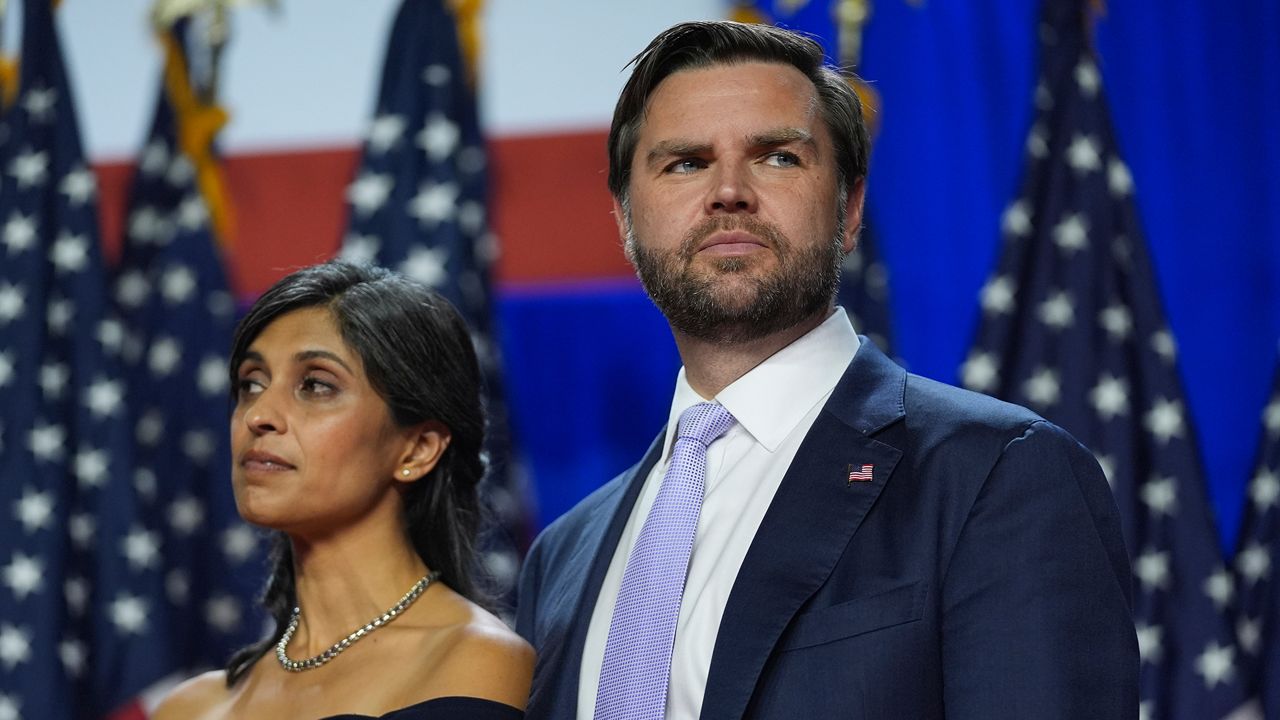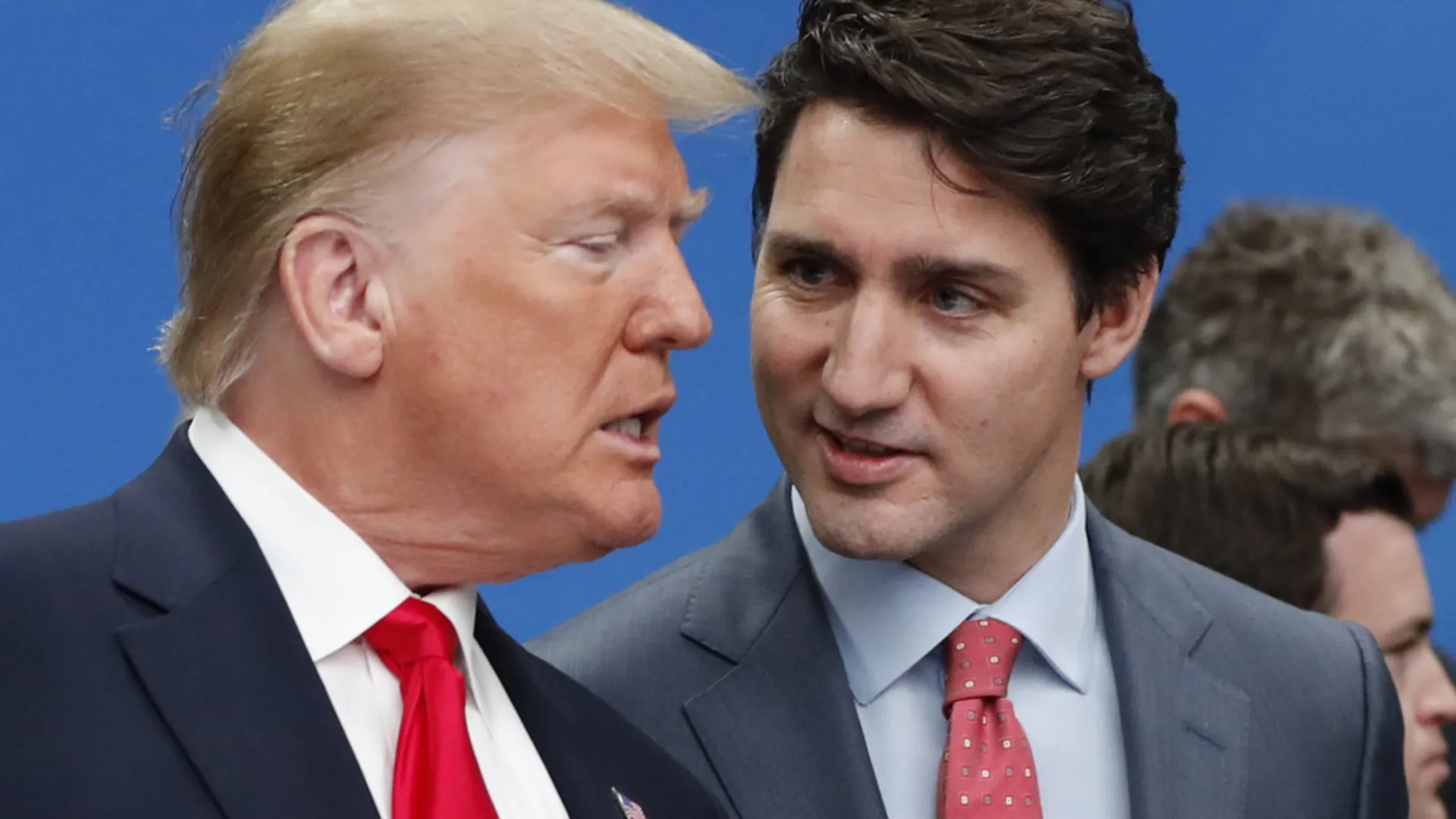The news that Usha Vance’s highly anticipated trip to Greenland was abruptly canceled has sent shockwaves through the political community, raising questions about the effectiveness of the Trump administration’s diplomatic strategy. What was meant to be a high-profile visit by the second lady of the United States to the self-governing Danish territory ended in what can only be described as a public relations debacle.
Reports have surfaced that American representatives were seen knocking door-to-door in Nuuk, the capital of Greenland, to gauge how locals might react to Usha Vance’s visit. The results were anything but positive.
According to TV 2 correspondent Jesper Steinmetz, the “charm offensive” launched by American diplomats fell flat, with local residents giving the cold shoulder to the Vance family’s plans. “The Americans’ charm offensive mission has failed,” Steinmetz reported, adding that the locals were uninterested and unwelcoming.
This diplomatic faux pas highlights the difficulties the Trump administration has faced in its relations with Greenland, a territory that has been the subject of bizarre threats and misguided initiatives from the White House. From an ill-fated attempt to purchase Greenland to militaristic comments about its sovereignty, the Trump administration’s relationship with the island has been anything but smooth.
The initial plan for Usha Vance’s visit was for her to attend a dogsled race in Greenland, an event she had expressed excitement about in an Instagram video statement. In the video, the second lady shared that she was “reading all about it with my children” and was eager to meet the residents of the island.
She went on to explain her purpose, saying she was coming to “celebrate the long history of mutual respect and cooperation between our nations and to express hope that our relationship will only grow stronger in the coming years.”
However, the Vance family’s travel plans to Greenland were suddenly scrapped, a move that seems to have been influenced by the overwhelming negative feedback from the local population. Instead of following through with the trip, the Vance family pivoted to a visit to the Pituffik Space Base, located on Greenland’s northwest coast.
The space base, part of the U.S. military’s efforts to bolster Arctic security, has been described as a more fitting venue for the Vances’ visit.
In response to the cancellation, a senior White House official attempted to downplay the situation, calling the reports “categorically false.” However, they did not specify what part of the reports they objected to.
“The Second Lady is proud to visit the Pituffik Space Base with her husband to learn more about Arctic security and the great work of the Space Base,” the official stated, attempting to shift the focus from the failed Greenland visit to the more politically palatable narrative of national security.
The White House’s response raises more questions than it answers. If the visit to Greenland had been so carefully planned, why was it canceled so abruptly? And why did the Vance family choose to change course and opt for a visit to a military installation instead? The lack of transparency around the situation only adds to the sense of confusion and miscommunication.
Greenland’s government has not been particularly receptive to the Trump administration’s repeated actions that have been perceived as aggressive toward the island’s sovereignty. The territory, an autonomous part of the Kingdom of Denmark, has made it clear that it is not interested in becoming a U.S. territory or subject to Trump’s whims.
In fact, Greenland’s government issued a statement on Facebook, saying it had “not extended any invitations for any visits, neither private nor official.”
This rejection is a direct response to the aggressive stance taken by President Trump and his administration. Over the past several months, Trump has made bizarre comments about purchasing Greenland, even suggesting that the U.S. could “buy” the island, which has been met with widespread mockery and anger from both the Greenlandic people and international observers.
Trump's comments about Greenland have been characterized as “aggressive” by officials in Denmark and Greenland, who view the president's behavior as an affront to their sovereignty.
The tension between the Trump administration and Greenland has been brewing for some time, with the president making militaristic comments about the island and its strategic importance. The most well-known episode occurred when Trump suggested that the U.S. should “buy” Greenland, a comment that was met with disbelief and ridicule.
In response, Greenland’s government issued a firm statement rejecting the idea of selling the island, stressing that it is not for sale.
Trump’s attempt to turn Greenland into a political bargaining chip reflects the broader trend of his administration’s “America First” approach to international relations. The U.S. president has sought to exert his influence over countries and territories, often with little regard for their sovereignty or the feelings of their people.
Greenland, with its valuable resources and strategic location in the Arctic, has become one such target of Trump’s aggressive foreign policy approach.
The controversy surrounding Trump’s approach to Greenland is not limited to his diplomatic blunders. Republican lawmakers have also waded into the debate, with some pushing for the U.S. to focus more heavily on Greenland’s security as part of a broader national security agenda.
Georgia Representative Buddy Carter recently proposed that Greenland should be renamed “Red, White, and Blueland,” in a move that seems designed to placate Trump’s desire for more control over the territory. Carter, who is known for his close ties to Trump, suggested that Greenland’s strategic location in the Arctic made it a national security priority for the U.S.
Carter’s proposal, while largely symbolic, underscores the way in which Republicans are increasingly looking to align themselves with Trump’s vision of global power dynamics. The idea of controlling Greenland is part of a broader push by some in the GOP to assert dominance over the Arctic region, which is becoming increasingly important due to climate change and the melting of Arctic ice.
However, Carter’s remarks and other similar proposals reflect a troubling disregard for Greenland’s autonomy and the delicate balance of international relations in the region.
In contrast, a recent poll by the pollster Verian found that 85 percent of Greenland’s residents do not want to become part of the United States. Just 6 percent were in favor of the idea, while 8 percent were undecided.
These numbers demonstrate that the people of Greenland are overwhelmingly opposed to any notion of becoming a U.S. territory, despite the Trump administration’s attempts to frame the issue as a national security imperative.
The cancellation of Usha Vance’s Greenland trip is more than just a diplomatic mishap; it is a public relations disaster for the Trump administration. The fact that American representatives were seen going door-to-door in Nuuk, canvassing locals to see if they would welcome the vice president’s wife, only to be met with repeated rejections, is a striking reflection of how out of touch the administration is with the people it seeks to engage with.
The Vance family’s trip to Greenland, which was initially meant to celebrate the long-standing history of cooperation between the U.S. and Greenland, has instead become a symbol of the Trump administration’s clumsy handling of foreign relations. The fact that such a high-profile visit was canceled due to a lack of local support highlights the failure of the administration’s approach to diplomacy, which has been marked by a series of ill-conceived and tone-deaf actions toward key international partners.
The cancellation of the trip has also raised questions about the role of diplomacy in the Trump administration. With the U.S. seeking to expand its influence in the Arctic region, the failure of the Vance visit underscores the need for a more thoughtful and respectful approach to foreign relations.
Greenland’s sovereignty should be respected, and any efforts to engage with the island’s residents should be based on mutual understanding and respect, rather than the heavy-handed tactics that have characterized much of Trump’s foreign policy.
The fallout from Usha Vance’s failed trip to Greenland is likely to have lasting consequences for U.S.-Greenland relations. The incident serves as a stark reminder of the importance of diplomacy and respect for sovereignty in international relations.
Moving forward, it will be crucial for the U.S. to adopt a more nuanced approach to its dealings with Greenland and other territories in the Arctic region.

As for the Trump administration, the public relations disaster surrounding the Vance trip is a reminder of the challenges the White House faces in repairing its image abroad. The administration must reconsider its approach to diplomacy, focusing on building trust and goodwill with its international partners rather than pursuing aggressive and often misguided initiatives.
Greenland may not be for sale, but the way the U.S. engages with the island and its people remains an important question in the coming years.







